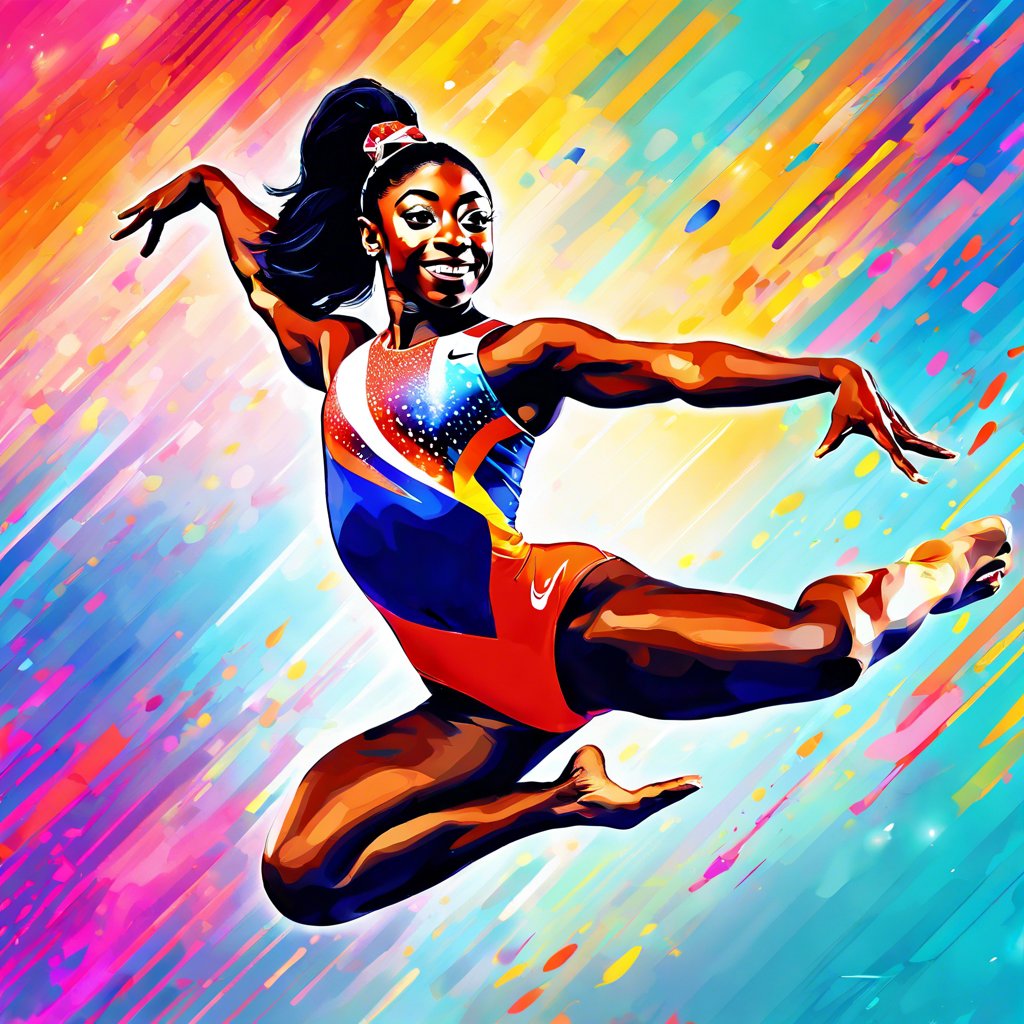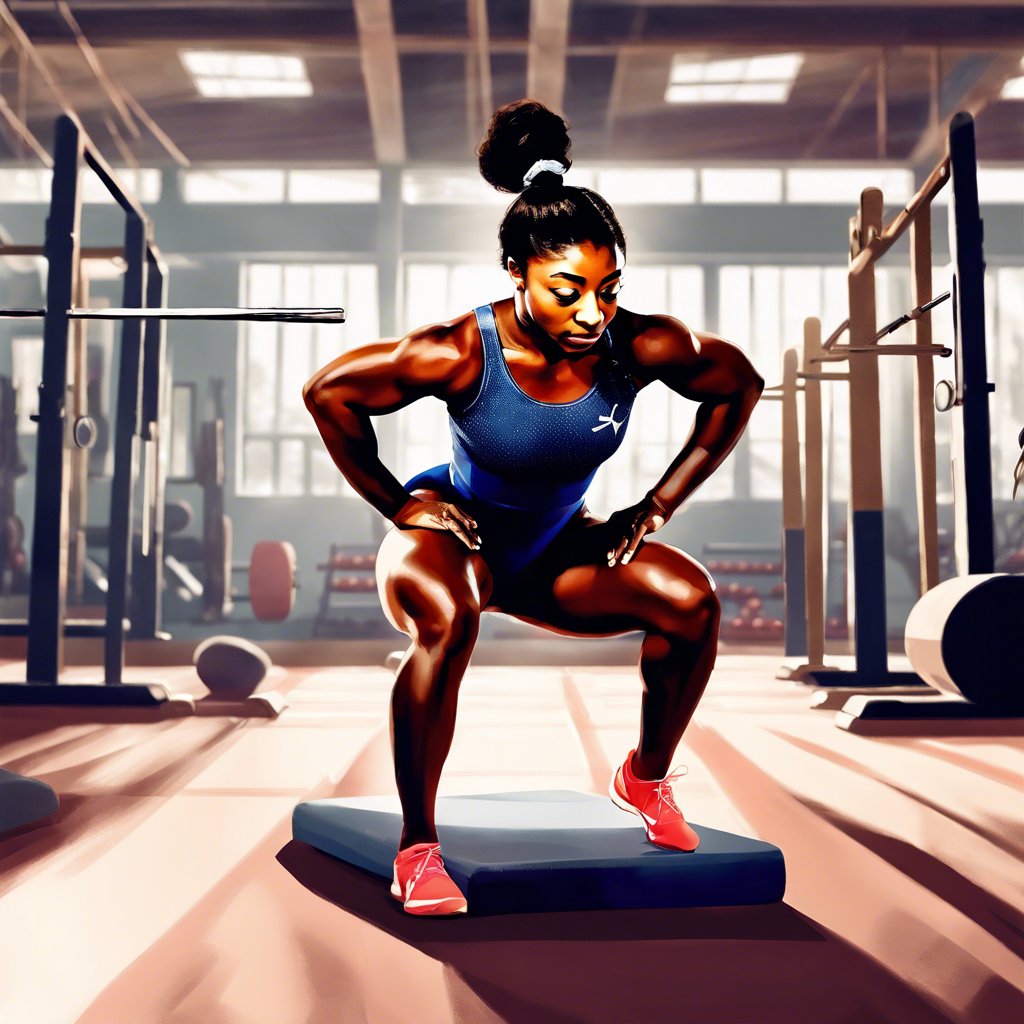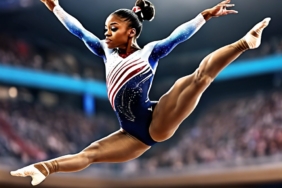Simone Biles: A Legacy Beyond the Mat
PARIS — Manila Esposito, who clinched a bronze medal on the balance beam, appeared visibly overwhelmed during the crowded post-meet press conference. As she attempted to gather her thoughts, her voice barely rose above a whisper. Sensing her struggle, Simone Biles reached over to adjust Esposito’s microphone, offering a reassuring nod to encourage the young Italian gymnast.
Later, when a question was directed at Alice D’Amato, Esposito’s teammate, there was a brief pause before D’Amato could respond. The moderator began to prompt her when Biles gently reminded him that the translation process in their earpieces takes a moment to catch up.
Every now and then, a reminder surfaces: Simone Biles is 27 years old. This is not her first time navigating the pressures of competition. She has accumulated a wealth of experience, both in triumphs and setbacks. Biles stepped onto the international gymnastics scene over a decade ago as a braces-wearing 16-year-old, too young to drive or even sip champagne at the Olympic celebrations in Rio in 2016.
Now, as a married woman, Biles finds herself facing questions about her future, even before she finishes competing in Paris. When asked about the prospect of competing in Los Angeles, she initially offered a vague response, acknowledging that it would be lovely to perform on home soil, yet recognizing the reality that age is not just a number. “I’m old,” she remarked with a laugh.
Later, she expressed her frustration on social media, tweeting, “You guys really gotta stop asking athletes what’s next after they win a medal at the Olympics,” and added, “Let us soak up the moment we’ve worked our whole lives for.”
- Follow our live coverage of the 2024 Paris Olympics
This sentiment captures the essence of the situation, especially regarding Biles. It is the spectators who need to appreciate her achievements rather than grasping for more. In the realm of sports, Biles has become a constant presence, a near-certain source of inspiration and excellence. Neither age nor injury, nor the demons of mental health and abuse, have managed to defeat her resolve. She repeatedly returns, leading to a collective anxiety: What if this competition marks the end of her storied career?
That possibility looms larger now. Her coach, Cecile Landi, is set to become the head coach at the University of Georgia, with her husband and Biles’ co-coach, Laurent, planning to follow suit after their daughter finishes college. It seems like the right moment for a transition. Biles has nothing left to prove, but therein lies the intrigue. This pursuit ceased to be about validation three years ago.
During the Tokyo Olympics, grappling with the twisties, Biles undertook a profound journey to confront the root of her mental health challenges. She bravely revealed the abuse inflicted upon her by Larry Nassar and questioned USA Gymnastics’ role in the systemic issues, even testifying before the Senate Judiciary Committee. She wrestled with her own “why,” a daunting inquiry for anyone contemplating their true desires and identities. Moreover, she had the courage to acknowledge that she had lost her passion for gymnastics, merely performing to meet expectations. More impressively, Biles navigated the path to recovery, taking a year off from a sport where time is often unforgiving.
“To do the work, the personal work to be here and to perform, it’s amazing,” Laurent Landi stated. “It just shows how resilient the mind can be, and that if you heal it properly, you can achieve remarkable success.”
She is far from fading into the background. Throughout the week in Paris, Biles dealt with a persistent calf injury, which had been aggravated prior to the trials and flared up again during qualifications. Doctors wrapped her leg during the competition, and while Biles downplayed its seriousness — jokingly chastising reporters for being overly curious — Landi admitted managing the pain had been a constant effort. “It was bothering her, of course,” he said. “Did it impact her performances? I don’t think so.”
Landi smirked, as if to say, “You tell me.” After all, Biles secured four medals, three of which were gold, surpassing the medal count of all but 22 countries competing in Paris thus far.
However, the final day was intended as a grand farewell, a celebration of her illustrious career. Instead, it highlighted Biles’ humanity. She was fatigued, having competed in four of the five possible days of the event, and felt mentally drained. The weight of correcting the narrative from Tokyo loomed large over her. The atmosphere during the event finals felt peculiar as well. Instead of the usual background music, the Bercy Arena transformed into a somber space, reminiscent of a church, with audience members audibly tsk-tsking those who dared to react to the gymnasts’ impressive performances on the beam.
“We asked several times if we could have some music or background noise,” Biles shared. “So I’m not really sure what happened there.”
These are not merely excuses; they represent the realities she faced. The beam competition resembled the Hunger Games, where medals were awarded to those who managed to stay on the apparatus. Three gymnasts, including Sunisa Lee, fell before Biles, and two others had significant balance issues. Yet when Biles missed a landing on her back layout step out and fell, the arena collectively gasped. As the competition concluded and Biles officially failed to medal, a mother in line at the Bercy Arena concessions lamented to her young daughter, “I feel so bad for Simone.” The daughter, wide-eyed, responded, “She fell,” as if witnessing Da Vinci paint outside the lines or Beethoven miss a chord.
Regardless of what Simone Biles decides to pursue next, her legacy will undoubtedly shine brightly, characterized by gymnastics excellence and, more significantly, by her leadership and courage beyond the mat. (Naomi Baker / Getty Images)
For a young girl who couldn’t have been older than 8, the reality was that in her lifetime, Biles has epitomized Olympic perfection. Until this beam final, she had competed in nine different Olympic events throughout her career, including team, all-around, and event finals, medaling in each one and securing an astonishing seven golds.
Then, her very humanity dared to emerge once again. Two hours after her beam misstep, Biles returned for the floor exercise, an event she has never lost at either the Olympics or world championships. However, she landed awkwardly during warm-ups, seemingly aggravating that same calf injury. After a brief treatment, Biles nonetheless took to the floor, landing her first tumbling pass and restoring a sense of order. Yet, on her second and fourth passes, Biles stepped out of bounds, losing precious tenths of a point, ultimately placing second to Brazil’s Rebeca Andrade.
It’s worth noting that she faltered on two moves named after her, moves that no other gymnast even attempts. This, in Biles’ world, defines failure.
Her definition of success? If you ask Biles, it transcends medals and accolades. It lies in the very essence displayed during the last day of competition: her authenticity. She takes pride in her achievements but is even prouder of the person she has evolved into and the lives she believes she has positively impacted.
“Putting your mental health first and taking time for yourself, whether in sports or not, is about longevity,” she emphasized. “It’s about sustaining a healthy lifestyle, both in sports and in life.”
Not far from where Biles competed, a woman strolled along a Parisian sidewalk, accompanied by her friendly Australian Shetland sheepdog. Stopping to chat with fellow dog lovers, she shared her appreciation for the “American gymnast.” Having watched Biles’ documentary on Netflix, she praised her for sparking vital conversations about mental health.
“I am not an athlete,” she acknowledged, but expressed gratitude that Biles had normalized discussions about personal struggles. “I appreciate that.”
If this indeed marks the conclusion of Biles’ competitive career, we should all take a moment to appreciate Simone Biles and the profound impact she has had on gymnastics and beyond.
(Top photo of Simone Biles with her gold medal from the vault competition: Tom Weller / VOIGT / Getty Images)


















